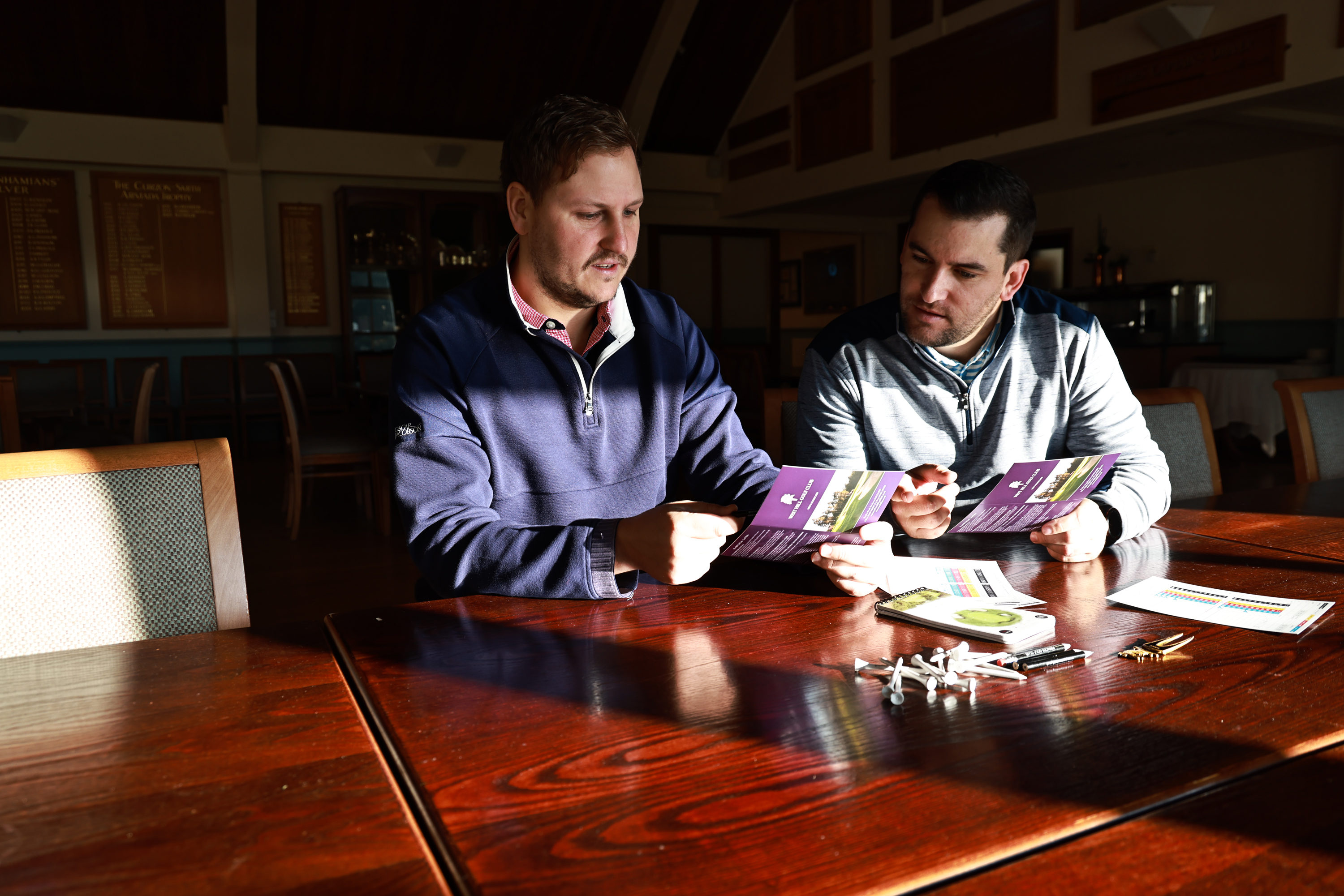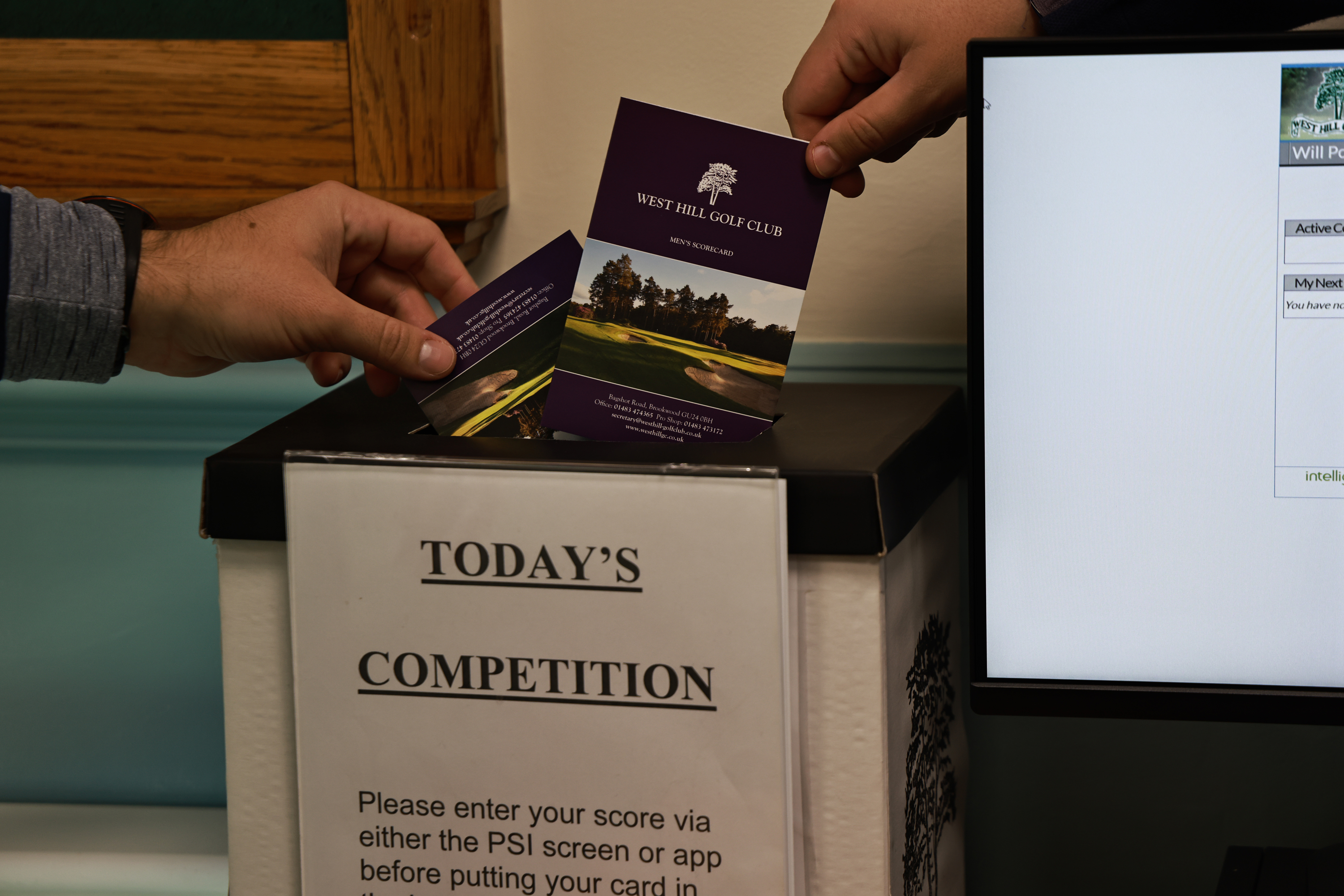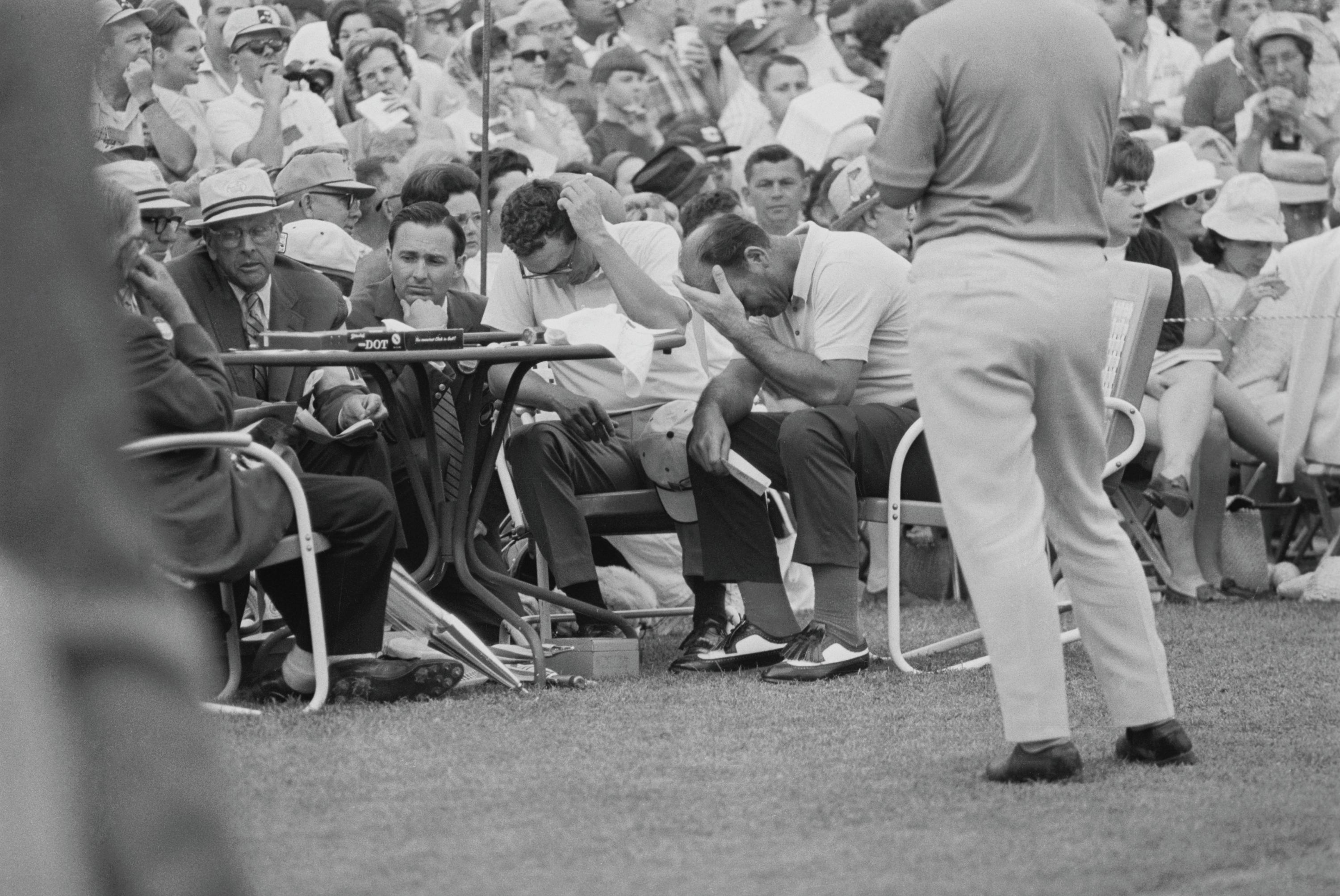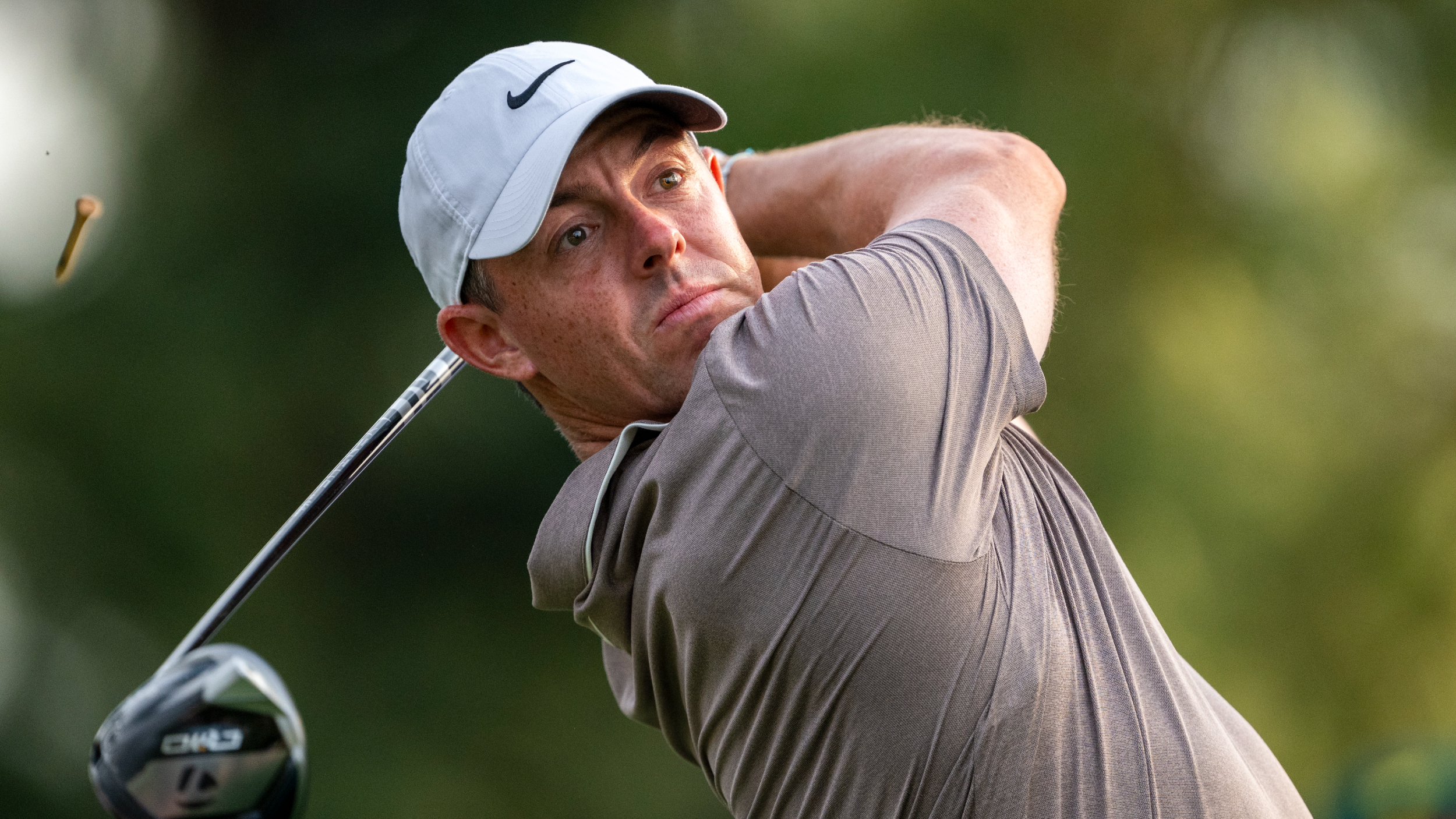What Happens If You Sign An Incorrect Scorecard?
There are situations when there are repercussions for both the player and the marker. Here we look at those scenarios to help you avoid making a mistake.


Golf is a complex and hugely variable game. No two rounds have ever been, nor ever will they be the same. There are countless scenarios that a player will encounter on the golf course and that means a comprehensive set of Rules is required to cover every possibility. The modern Rules of Golf have evolved and are constantly evolving to be as all-encompassing as possible, but also as concise as possible.
Scoring is a fundamental part of competitive golf and the Rules are explicit on the requirements for recording, checking and verifying scores in strokeplay competition. With the best will in the world, players and markers will make mistakes when recording scores on a card and the Rules cover those situations. Rule 3.3b covers Scoring in Strokeplay.
What Are The Rules For Signing A Scorecard In Golf?

Players checking their scorecards
At a basic level, in strokeplay competition, the player’s score is kept on their scorecard by the marker.
After each hole, the marker should confirm the player’s gross score and enter it on the scorecard.
After the round the marker must certify the scores entered on the scorecard. That can be by signature, by printed name, by initial even. We say “sign your card.” But, actually, the requirement is to certify the scores. The marker is not required to add the scores together, nor are they required to do other calculations like working out Stableford points totals – That is the committee’s responsibility.
It's worth knowing though, a marker will be disqualified if they knowingly certify a wrong score for a hole.
Can You Be Disqualified For Not Signing Your Golf Card?

Golfers putting their cards in after competition
Not exactly. As a player, you must certify the hole scores on the scorecard but that doesn’t specifically require you to sign the card. If you were to initial the card or make a squiggle on the card to show your certification, that would be acceptable. But if you handed a card in with no certification, you would be disqualified.
Get the Golf Monthly Newsletter
Subscribe to the Golf Monthly newsletter to stay up to date with all the latest tour news, equipment news, reviews, head-to-heads and buyer’s guides from our team of experienced experts.
As a player, your responsibilities are to check the hole scores entered by your marker, make sure the marker certifies the scores and then certify the hole scores yourself. Like the marker, the player is not responsible for adding scores together. If you do add the scores incorrectly, but the individual hole scores are correct, there is no penalty and the actual total score will stand.
As a player, you are not responsible for putting your name on the card, nor the date, nor your handicap. That is the committee’s responsibility.
And, as a player, you will not face a penalty if the breach is a result of a marker failing to carry out their responsibilities.
For example, there is no penalty if the marker leaves the course without certifying a player's scorecard or if they leave the course with the scorecard in their possession so long as this was beyond the player's control.
In these instances, report it to your competition committee or Club Professional. They will attempt to contact the marker and any additional playing partners to verify the score but if that's unsuccessful, they can certify the score themselves.
What happens if you sign for the wrong score on a hole?
If you certify a score where an individual hole score returned is higher than the actual score, there is no penalty but the higher returned score will stand.
But, if you certify a score where an individual hole score returned is lower than the actual score, you will be disqualified.
The only exception to that would be if you had failed to include an unknown penalty. If that was discovered before the close of competition, the committee will revise the individual hole score to include the penalty and the total would be altered accordingly.
Who Lost The Masters By Signing An Incorrect Scorecard?

Roberto De Vicenzo signed for the wrong score at the 1968 Masters
At the 1968 Masters, Roberto De Vicenzo of Argentina certified a score at the end of the final round that stated he had made a four at the 17th when in fact he had made a three. That meant his total was 66 rather than the 65 he had actually shot. Under the Rules the higher score had to stand and De Vicenzo ended up missing out on a playoff with Bob Goalby by a single stroke.
That shows why it pays to make sure you check your individual hole scores very carefully before you certify your card and pass it to the committee!

Fergus is Golf Monthly's resident expert on the history of the game and has written extensively on that subject. He has also worked with Golf Monthly to produce a podcast series. Called 18 Majors: The Golf History Show it offers new and in-depth perspectives on some of the most important moments in golf's long history. You can find all the details about it here.
He is a golf obsessive and 1-handicapper. Growing up in the North East of Scotland, golf runs through his veins and his passion for the sport was bolstered during his time at St Andrews university studying history. He went on to earn a post graduate diploma from the London School of Journalism. Fergus has worked for Golf Monthly since 2004 and has written two books on the game; "Great Golf Debates" together with Jezz Ellwood of Golf Monthly and the history section of "The Ultimate Golf Book" together with Neil Tappin , also of Golf Monthly.
Fergus once shanked a ball from just over Granny Clark's Wynd on the 18th of the Old Course that struck the St Andrews Golf Club and rebounded into the Valley of Sin, from where he saved par. Who says there's no golfing god?
-
 Rory McIlroy Skips Media After Late Masters Collapse
Rory McIlroy Skips Media After Late Masters CollapseRory McIlroy skipped talking to the media after his Masters first round
By Mike Hall Published
-
 Will This $10 Training Aid Propel Scottie Scheffler To Masters Glory?
Will This $10 Training Aid Propel Scottie Scheffler To Masters Glory?Going for his 3rd Green Jacket in 2025, is this cheap training aid the secret to Scheffler's success?
By Joe Ferguson Published